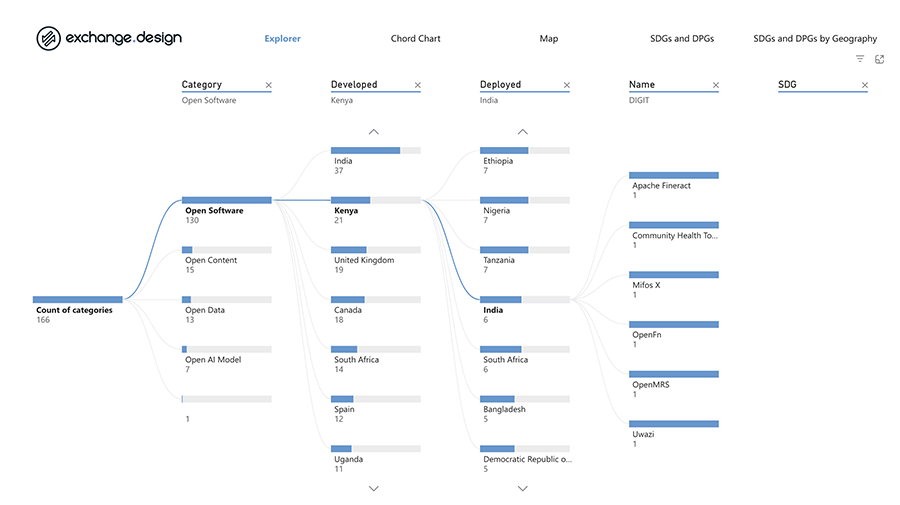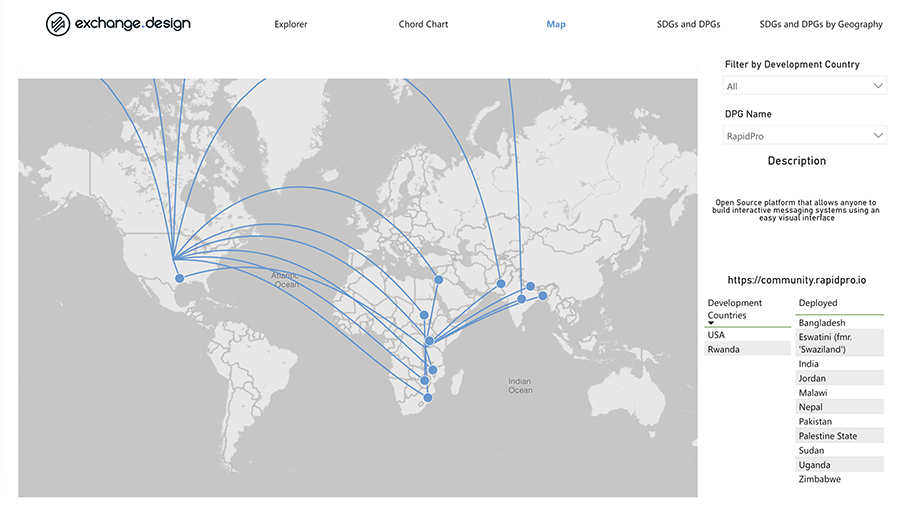Let us know what type of content you'd like to see more of. Fill out our three question survey.
Localizing Digital Public Goods
Dec 14, 2023
DAI is pleased to announce the release of its latest CDA Insights paper, “Localizing Digital Public Goods.”
Global donors and development implementers are increasingly aligned around the theory that digital investments are most effective and equitable when owned by local stakeholders who can leverage the full potential of digital technologies and data. They are also embracing an agenda of “localization” to prioritize local digital ownership, expertise, and leadership.
Digital public goods provide local actors with an alternative to expensive, proprietary digital solutions through a verified registry of open-source software, open data, open artificial intelligence (AI) models, open standards, and open content. International development actors seeking to localize these digital public goods and related digital public infrastructure (DPI) must adapt digital solutions to suit local digital ecosystems, as well as ensure they are wholly owned by local partners. In this post, we provide an overview of a new report that DAI authored about the challenges and opportunities associated with localizing digital public goods.
As part of this research, our partner ExchangeDesign created a DPG Explorer that allows us to analyze data on existing digital public goods, where they were developed and deployed, and which digital public goods they support. See two screenshots of the analysis below:


In addition to analyzing this data, the report conducted 21 key informant interviews to better understand the challenges and opportunities of localizing digital public goods. The report identifies five principal challenges and offers initial recommendations to address them:
- Donors and implementers do not yet share an agreed definition of or vision for localization, let alone metrics for measuring progress toward it. Recommendation: Donors should align on “Principles of DPG Localization” to explicitly state their definitions, priorities, and targets. The Digital Public Goods Alliance (DPGA) should consider expanding digital public goods metrics to include global utility, community support, and software maturity.
- The DPG registry is skewed toward historical donor priorities rather than current implementer localization needs. Recommendation: DPGA should consider actively soliciting underrepresented DPG categories, languages, and regions, as well as prominent “missing” digital public goods. DPGA should also take steps to increase community ownership in the digital public goods approval process.
- The DPG community of practice is fragmented and often inaccessible to local actors. Recommendation: Digital public goods experts and practitioners should try to network, publish, and convene discussions outside of their sub-communities. Donors and implementers should insist on communicating through hybrid (digital and face-to-face) experiences that are comparable to in-person experiences, as well as rethink communication channels such as static reports.
- Donor funding and implementation incentives are misaligned for digital public goods localization needs. Recommendation: Donors should consider a “sustainability levy” to incentivize cooperation around localization and foster long-term capacity-building initiatives to improve local partners’ ability to compete for grants.
- Insufficient local technical capacities—and perceptions thereof—inhibit local ownership. Recommendation: Donors should prioritize local digital public goods capacity strengthening as critical to digital public goods implementation and invest in digital public goods academies that generate open content that can be repurposed by local educational institutions. Donors and implementers should incentivize informal learning, peer-to-peer exchange, self-study content, and certificate programs.